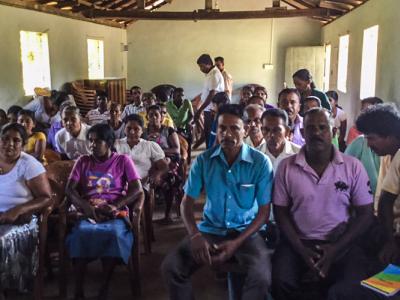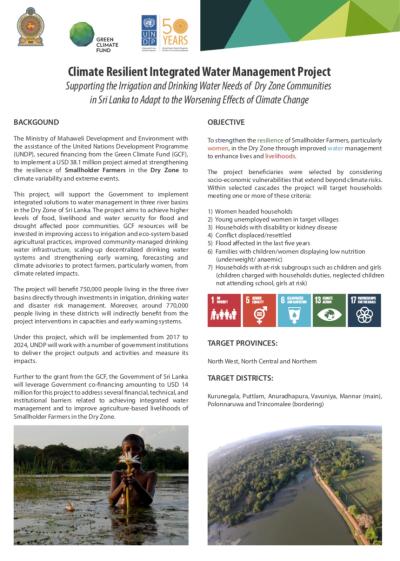Sri Lanka’s economy is highly reliant on climate-sensitive sectors such as agriculture, forestry and energy production. Some adaptation measures have already been adopted in these sectors to promote better environmental management. Programmes have been established for the agricultural sector to manage soil erosion, support better water management and encourage the diversification of agricultural production. In the energy sector policies have been developed to support increased energy efficiency and to reduce associated environmental pollution. In Sri Lanka’s First National Communication of 27 October 2000, it is noted that to effectively respond to anticipated climatic changes the existing adaptation measures need to be extended and action needs to be taken in other areas.
Sri Lanka is a tropical island which lies between 6o and 10o N latitude and between 80o and 82o E longitude. It covers an area of about 65,610 square kilometres and has a maximum width of about 240 km and a maximum length of the island of about 435 km. Sri Lanka has a vast coastal plain with a mountainous area in the southern and central regions. The coastal regions are most vulnerable to climate change and a significant proportion of the population reside in these maritime provinces. The climate in Sri Lanka supports forest growth and virtually the entire land area was once covered with forests. Deforestation has made soils less productive and affected the natural water supply. The majority of water resources in Sri Lanka are generated by the hills in the central region which intercept the moisture-laden monsoonal winds from the south-west and north-east. This creates a unique rainfall pattern and the surface water is transferred by 103 distinct natural river basins that cover 90% of the island. Despite this seemingly favourable position many areas experience droughts that last several months. The available surface water is primarily used for agriculture and hydro-electricity generation. _
Sources: Initial National Communication for Sri Lanka under the United Nations Framework Convention on Climate Change, 27 October 2000.
Active Projects
Projects Completed
Latest Updates
See allLatest Publications
See allFactsheet for the GCF-funded project in Sri Lanka, '…







